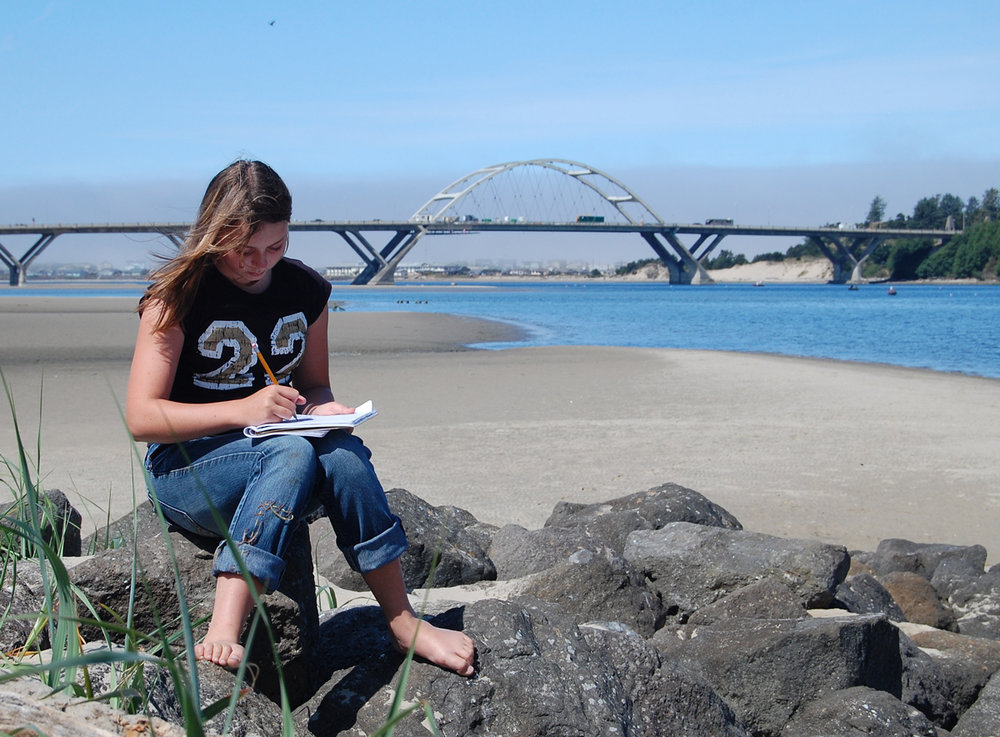 Kala Osborn, writing on the Alsea Bay, at age 13.
Kala Osborn, writing on the Alsea Bay, at age 13.
This is how it works:
I write with kids — sometimes for a day, or a week, sometimes for years. Hunkered over journals, we share chunks of time in which head, heart and words come together all at once. When we share our poems, stories, and secret thoughts, it's beautiful, scary and almost always exhilarating.
And then we meet again — the next day, or week, or never again.
Families break up, parents lose jobs or houses, and children move on or away. But the kids stick in my mind. The girl with hard eyes and a fast pen. The sneering boy who wrote love poems. The teen with fancy dresses and scars. The youngster who lived in a car.
I remember every one. Not what they wrote (though sometimes I am struck) but the mood and tone, the want and willing, the resistance and reach.
Last week we lost a young writer forever. Kala, an 18 year old high school senior, was killed when her car went over an embankment and into the Alsea River.
I knew Kala briefly, for just a week, when she was 13 years old. She was a student in Seashore Family Literacy's 2009 Summer Writing Adventure Camp, and we spent the week together hiking, biking, kayaking, and writing through each exploration.
Any Moment in a Kayak
With each stroke, the kayak surges forward.
When you bottom out all you can do is push with your paddle, or hands, or your mind.
The sound of the birds, mixed with the beautiful beating hot sky, is almost enough to put you to sleep.
When you catch the breeze you feel fresh.
When you stop to take it all in and close your eyes, you feel like it is all a dream and at any moment you could wake up and it would be gone.
— Kala Osborn, age 13
I live in a remote and in many ways untamed place, and tragedy hits hard and quick. One person knows another and another and we carry the weight of too much knowing.
Loss shakes and shows us. See, here, it says, this is how to enter the lives of each other, even briefly. Death reminds us that we are ever shaped, even slightly, by our interaction with others.
Over the years, I've kept in touch with many of the young writers. We write letters, share texts, emails, phone calls, and get together for meals. I see them get jobs, go to school, find love, move away, get lost, get in trouble. . . There are many struggles, too many to name. And the victories sometimes seem too small.
This morning one of my first students — from nearly 10 years ago — shared with me an update on her life. There was no big event, no shaking news, but that she was happy. And that felt enough. That felt like everything.
